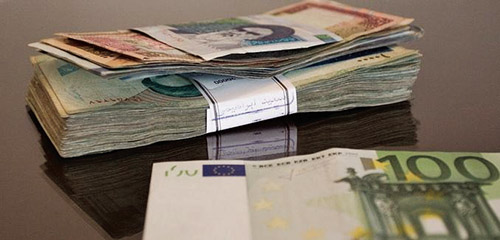
Iran was ranked as the world’s top global money-laundering threat by the Basel Institute on Governance this week, marking the third straight year that the Islamic Republic held the position.
The 2016 Basel Anti-Money Laundering (AML) Index identified Iran as the highest money-laundering risk out of 149 countries surveyed, The Wall Street Journal reported. A statement accompanying the index explained that “although a majority of countries legally comply with current AML/countering terrorism financing (CTF) standards, they fall short in the effective implementation and enforcement of these laws.”
According to the Journal, companies are hesitant to resume commercial ties with Iran because of money-laundering concerns.
The publication of the index comes a month after the Financial Action Task Force (FATF), a global anti-money-laundering watchdog, suspended financial countermeasures against Iran for one year. At the time, sanctions experts Mark Dubowitz and Toby Dershowitz of the Foundation for Defense of Democracies (FDD) wrote that the decision to temporarily suspend sanctions rather than totally remove Iran from the FATF’s high-risk blacklist indicated that the country “still has a long way to go before it’s safe to do business there.”
Dershowitz and Saeed Ghasseminejad, an associate fellow at FDD, wrote earlier this week that Iran is attempting to convince nations that it is serious about complying with FATF standards, including on combating the financing of terrorist groups, by referring to recent legislation passed by its parliament. However, according to Abdolmahdi Arjmandnejad, the Central Bank of Iran’s deputy for anti-money-laundering affairs, “liberation organizations are not subject to this law and the Supreme National Security Council decides who is a terrorist.”
Since Hezbollah, a terrorist organization that has targeted Western interests for over 30 years, is considered a “liberalization organization” by Iran, Dershowitz and Ghasseminejad observed that the country is merely using “wordplay not to cease terrorism but to justify it.”
Iran has complained that it has not received the benefits it should have from sanctions relief after all nuclear-related sanctions were lifted from the country in January. Some Iranian officials, including Supreme Leader Ayatollah Ali Khamenei and Central Bank of Iran governor Valiollah Seif, have threatened that the nuclear deal could collapse if Iran doesn’t receive more investment and further sanctions relief.
However, many financial sanctions were imposed on Iran before nuclear sanctions were imposed as a reaction to the country’s money laundering and financing of terrorist groups. The New York Times editorial board asserted in April that Iran’s corruption was responsible for the country’s economic problems. Similarly, Stuart Levey, President Barack Obama’s former undersecretary of the treasury for terrorism and financial intelligence and now the chief legal officer of HSBC Bank, wrote in The Wall Street Journal in May that because Iran remained a risk for “financial-crime risks and the underlying conduct,” his company had “no intention of doing any new business involving Iran.” The Journal, CNBC and other outlets reported a few days later that other European banks were hesitant to do business with Iran because of the risks involved.
An International Monetary Fund official also told Iranian authorities in May that “the best thing the government [of Iran] can do, and the banks can do, is to bring those standards up to international levels and try to reassure foreign partners, banks and otherwise that Iran’s banks are safe to deal with.”
Despite the limitations that corruption-related sanctions impose on Iran, nuclear-related sanctions relief has provided the Iranian economy with enough of a boost to possibly grow by 4 percent per year for the next five years. The Central Bank of Iran earmarked much of that sanctions relief for military spending, which is expected to grow by 90 percent next year.










